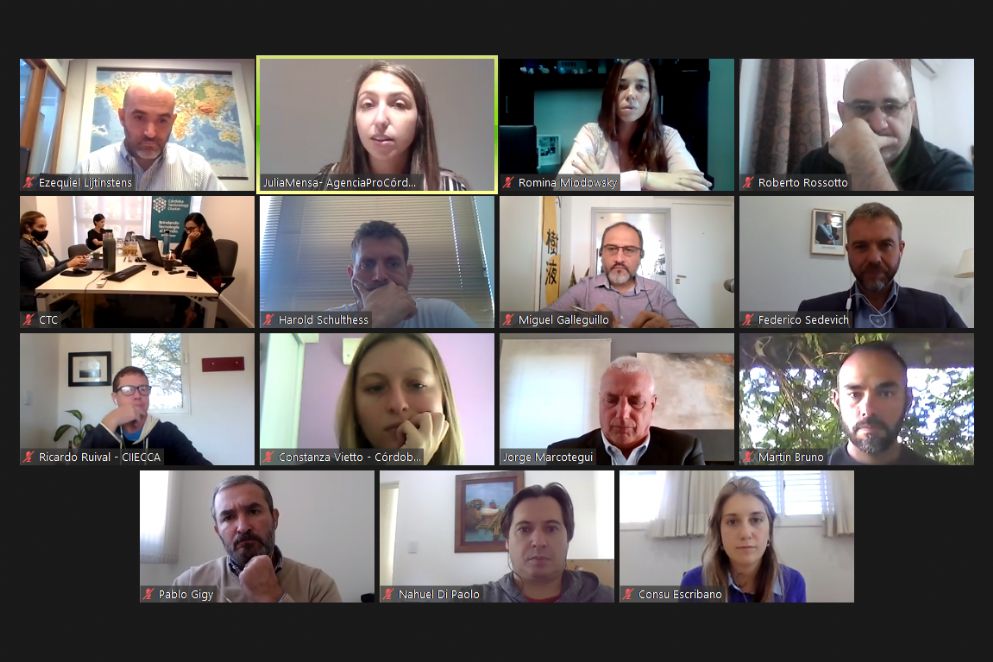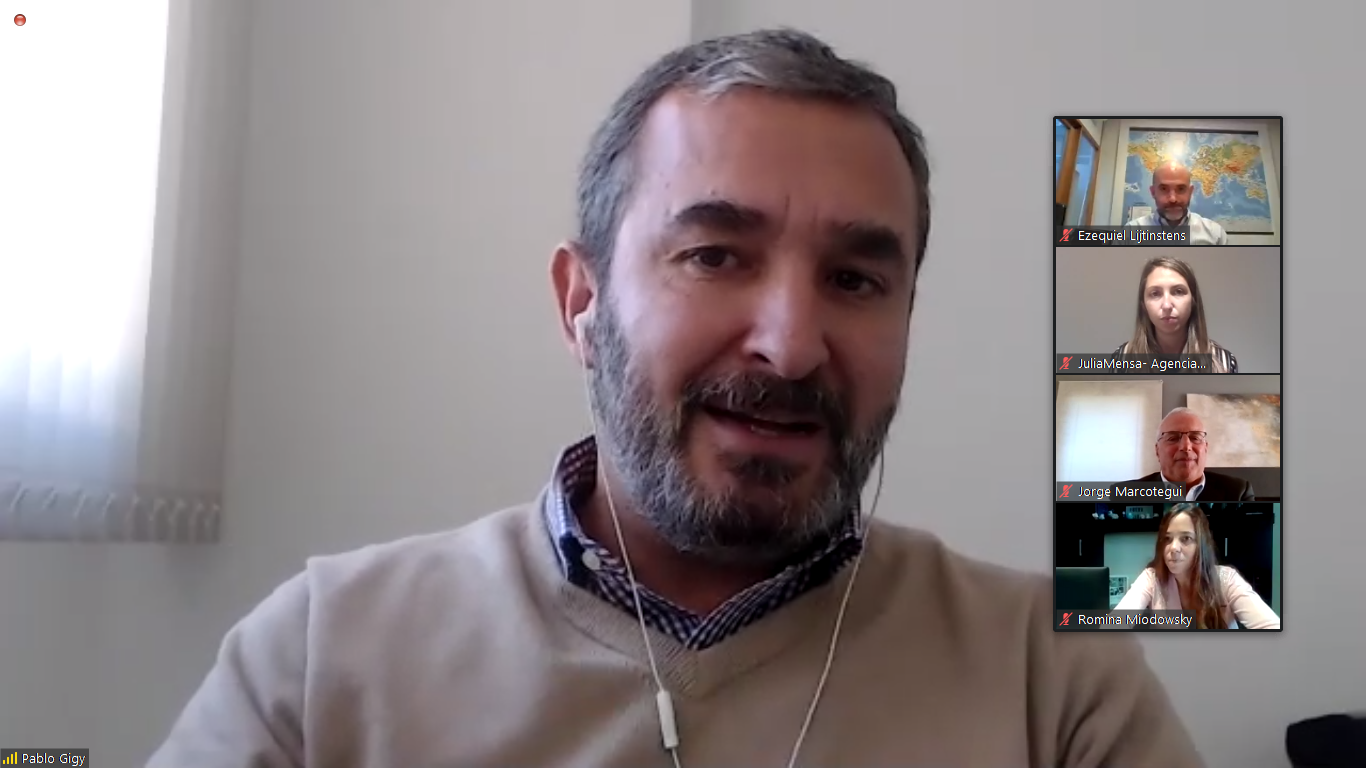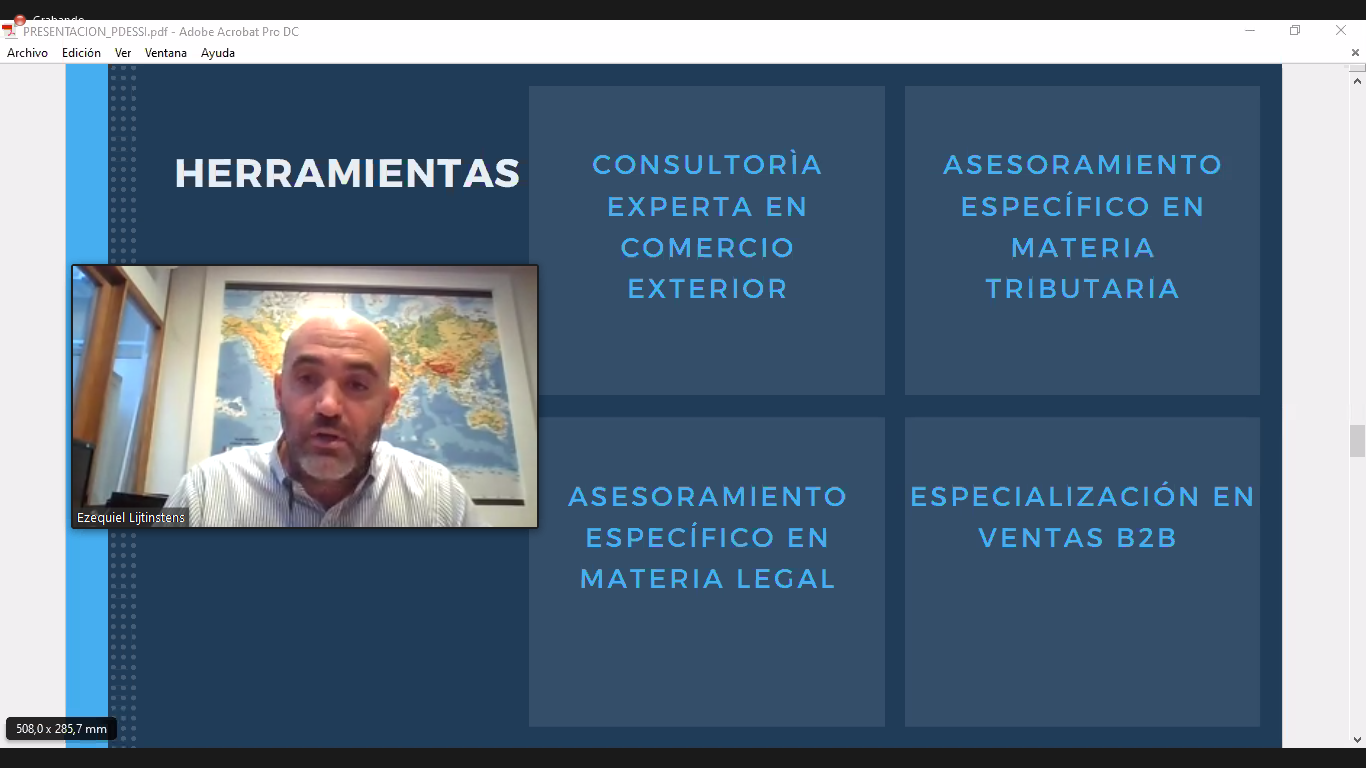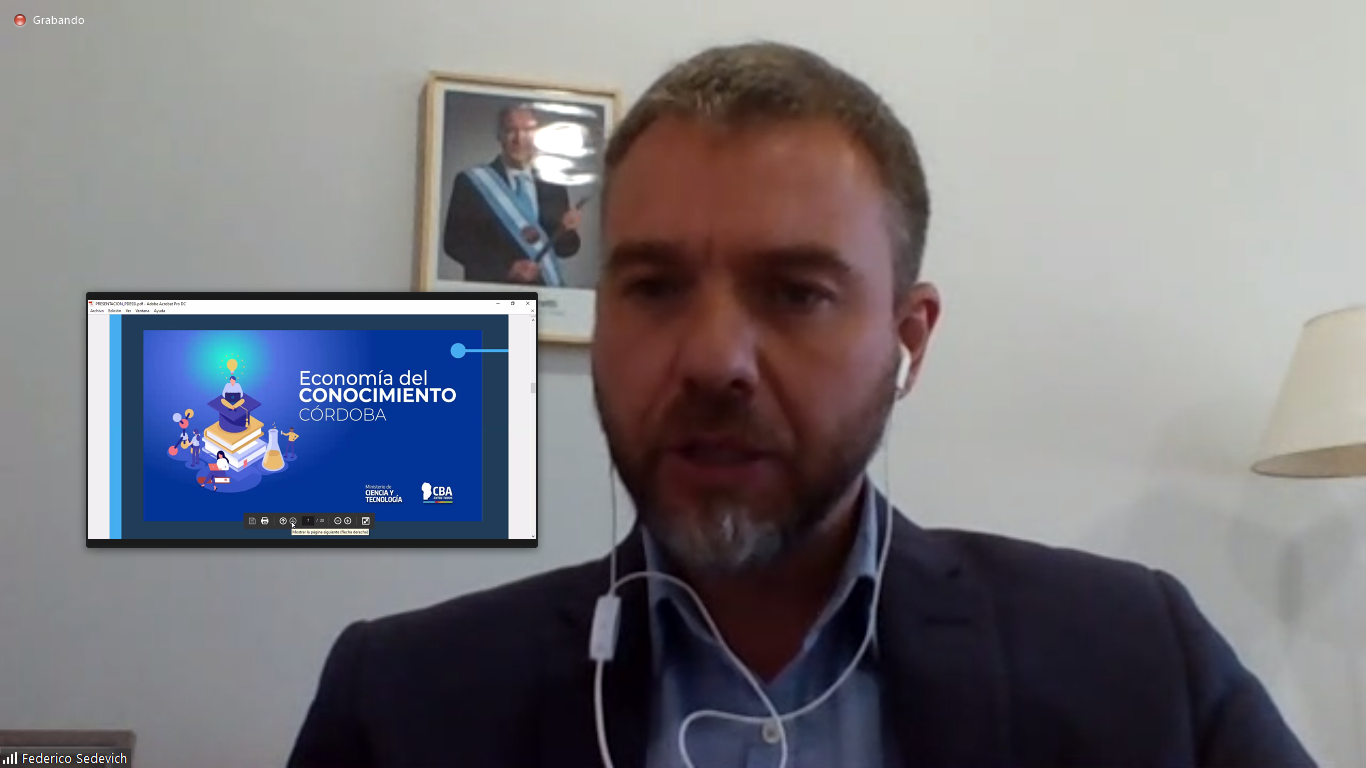
- The virtual event presented the opportunities and tools provided by the Program to support companies in the sector in their internationalization processes.
The opening remarks were given by ProCórdoba Agency's President Jorge Marcotegui and Córdoba Technology Cluster's President Pablo Gigy. Federico Sedevich, Secretary for New Technologies of the Ministry of Science and Technology of the Government of Córdoba, presented the benefits of the Provincial Knowledge Economy Act for companies in the sector in Córdoba.
Other organizations that support this initiative are the Technology Drive Cluster, the Río Cuarto Technology Cluster and the San Francisco Technology Cluster.




The software industry in Córdoba expects foreign markets to recover more solidly than the domestic market, so they are strongly committed to export efforts even in the middle of the second wave of Covid-19 infections. Over the last five years, sales of local software abroad have grown at an average annual rate of 11.5 percent. Last year, due to the effect of the pandemic, it fell back 1.8 percent and stood at 113 million dollars.
"Most likely, the rebound in foreign markets will be much greater than the recovery shown by the Argentine economy," said Pablo Gigy, President of the Córdoba Technology Cluster (CTC).
Unlike what happened in 2020, when the spread of the coronavirus slowed down the activity in many economies around the world, this year production and the sale of goods will register a greater activity, in spite of the specific measures that some countries are taking to stop the new waves of Covid-19, while vaccination progresses.
According to Gigy, the main difficulty for new companies to join the foreign trade market is the local economic situation. "The exchange rate gap does not favor exports; moreover, it encourages freelance work, since it makes some employees leave the company and sell their services abroad, something companies can't compete with. Even so, exports will continue," he assured.
The Export Development Program for the software industry started to be implemented in 2019 together with the CTC, but this time a new stage has been launched. The plan focuses on six markets, which in general are the main software export destinations for Córdoba: Chile, Peru, Colombia, Mexico, the United States and Canada.
So far, the program has worked with 18 companies from Córdoba, eight of which have achieved exports. The goal is to solve some issues that have hindered the entry of more software industries.
On the one hand, through the consulting firm KPMG, the program will add tax and legal advice on the markets and products of interest to the companies that join the program.
The program will also incorporate benefits provided by the national and provincial laws on the knowledge economy, which in Córdoba include tax stability and tax exemptions, as well as the Entry-to-Work program.
Finally, it has added a series of tools, including trade advisory and foreign trade consulting, as well as commercial contacts and a series of market studies that have been carried out in these countries since 2019.
Roberto Rossotto, general manager of ProCórdoba Agency, said, "Just as we did with the software industry, we have resumed several of our programs, such as those for the pasta & baking, rubber & plastic, agricultural machinery, and medical technology & equipment sectors."
Last year, exports from Córdoba fell by almost 10 percent and stood at 8,158 million dollars, which came mainly from agricultural products, since industrial production was affected by the pandemic.
In this regard, Rossotto noted, "There is still too much uncertainty to really estimate what will happen this year. The important thing is that demand is still strong and the world economy is no longer closed as in 2020. We expect that export figures will not be far from the average values of the last five years."
* Part of the information included here was taken from an article in La Voz del Interior.

